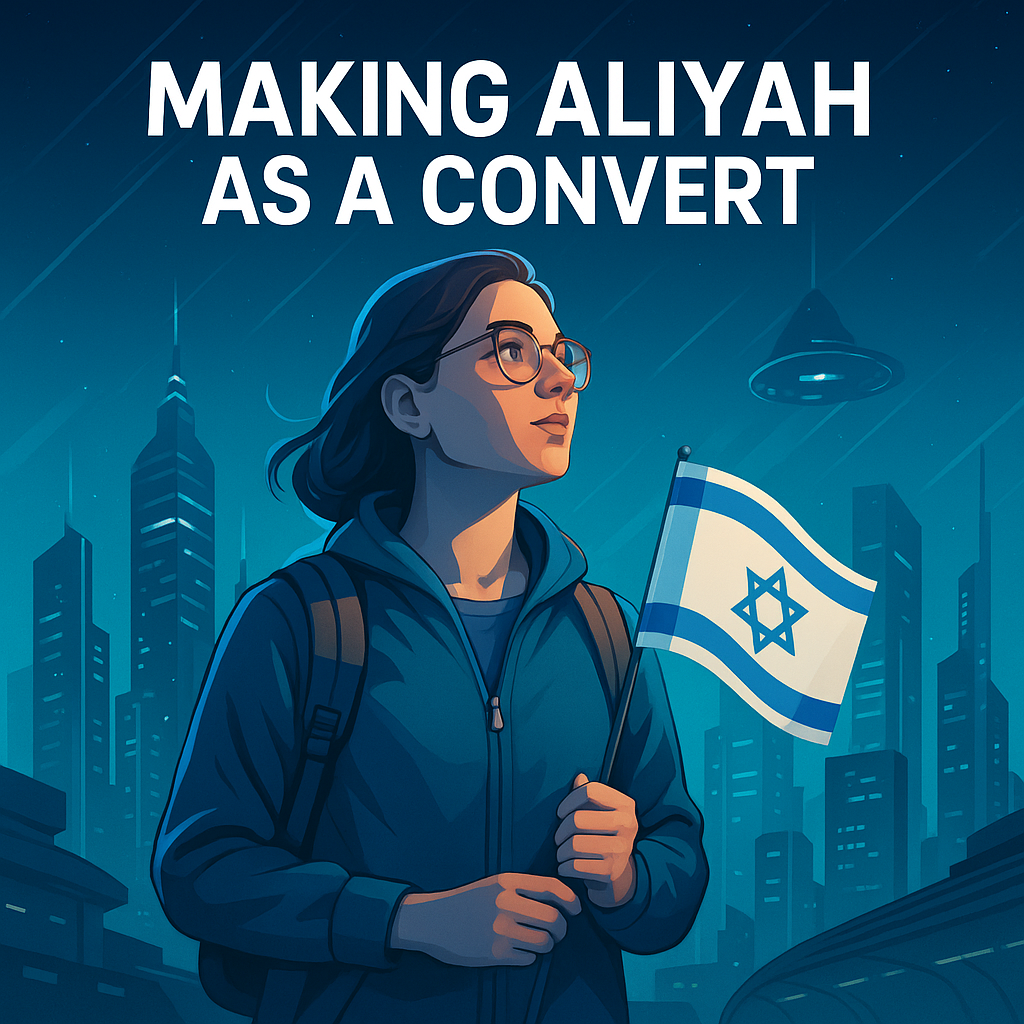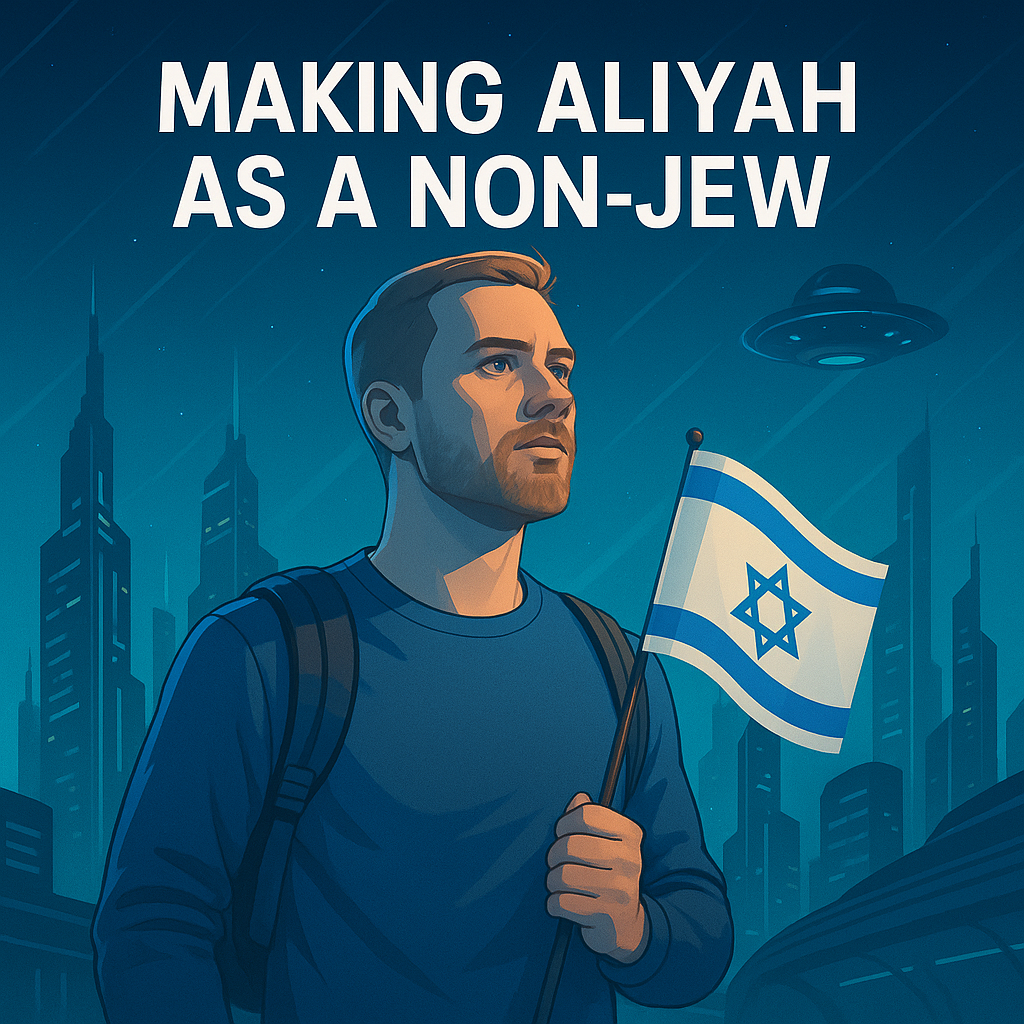Introduction
The journey of conversion to Judaism culminating in Aliyah (immigration to Israel) represents a profound spiritual and practical transition. For converts, the path to Israeli citizenship presents unique considerations beyond those faced by born Jews. This guide addresses the specific challenges, requirements, and opportunities for converts seeking to make Israel their home under the Law of Return.
Understanding Your Eligibility
The Law of Return and Converts
The Law of Return grants eligible Jews the right to immigrate to Israel and receive Israeli citizenship. According to the 1970 amendment to this law, “a person who has become converted to Judaism” is eligible for Aliyah. However, there are important nuances:
- Recognition of conversion: The Israeli authorities recognize Orthodox, Conservative, and Reform conversions performed outside Israel for immigration purposes, though this recognition has faced legal challenges and policy shifts over time.
- “Sincere intent”: Israeli authorities may examine whether the conversion was undertaken with “sincere intent” rather than solely for immigration purposes.
- Conversion timing: Conversions completed after submitting an Aliyah application may face additional scrutiny.
The Documentation Challenge
Converts face unique documentation requirements when applying for Aliyah:
Essential Documents
- Conversion certificate: Original document signed by the officiating rabbi(s)
- Letter from converting rabbi: Detailing the conversion process, your studies, and community involvement
- Proof of active participation: Documentation showing continued involvement in Jewish community life following conversion
- Mikveh certificate: Proof of ritual immersion as part of the conversion process
- Bet Din documents: Records from the rabbinical court that oversaw your conversion
- Standard Aliyah documents: Passport, birth certificate, marriage/divorce certificates, etc.
Documentation Tips
- Maintain a comprehensive portfolio of your Jewish life post-conversion
- Request detailed letters from community rabbis and Jewish organizations
- Collect photographs of participation in Jewish lifecycle events and holidays
- Keep records of synagogue membership and attendance
- Document any Jewish education you’ve pursued
Navigating the Application Process
Pre-Application Phase
- Establish Jewish community connections: Before applying, ensure you have substantial ties to a recognized Jewish community
- Connect with success stories: Reach out to converts who have successfully made Aliyah
- Research absorption options: Explore communities in Israel where converts have found welcoming environments
Application Process
- Initial consultation: Contact the Jewish Agency or Nefesh B’Nefesh for preliminary eligibility assessment
- Documentation submission: Provide all conversion and standard Aliyah documents
- Interview: Prepare for questions about your conversion journey, Jewish knowledge, and connection to Israel
- Approval and visa: Upon approval, receive an Aliyah visa in your passport
- Arrival and citizenship: Complete the immigration process upon arrival in Israel
Key Organizations
- Jewish Agency for Israel: The primary body handling Aliyah applications worldwide
- Nefesh B’Nefesh: Supports North American and UK olim (immigrants)
- Shavei Israel: Assists “returning” Jews including some converts
- ITIM: Israeli organization that can provide guidance on religious status issues
- IRAC: Israel Religious Action Center advocates for progressive Judaism recognition
Common Challenges and Solutions
Challenge: Conversion Recognition
Issue: Different streams of Judaism have different conversion standards, and Israeli recognition policies have evolved over time.
Solution:
- Work with established, widely recognized rabbinical authorities
- Ensure your conversion included all halachic requirements (study period, bet din approval, mikveh, and for men, circumcision)
- Maintain detailed records of your conversion process
- Be prepared to provide additional evidence of Jewish living if requested
Challenge: Questions About Sincerity
Issue: Israeli authorities may scrutinize whether a conversion was undertaken primarily for immigration purposes.
Solution:
- Document your Jewish journey beginning well before Aliyah application
- Demonstrate consistent Jewish observance over time
- Show integration into Jewish community beyond minimum requirements
- Be prepared to articulate your spiritual journey in authentic terms
Challenge: Religious Status in Israel
Issue: While your conversion may be recognized for citizenship purposes, questions about religious status for marriage and other religious matters may arise under Israel’s rabbinate system.
Solution:
- Research implications for personal status issues before arrival
- Connect with organizations that support converts in Israel
- Consider consulting with an Israeli rabbi familiar with conversion issues
- Understand that citizenship recognition and religious recognition are separate matters
Life in Israel as a Convert
Social Integration
As a convert making Aliyah, social integration involves unique aspects:
- Finding your community: Research communities where converts have been warmly welcomed
- Language acquisition: Prioritize Hebrew learning to better integrate
- Support networks: Connect with other converts who understand your journey
- Identity navigation: Prepare for questions about your background and journey
Religious Life
- Religious communities: Explore different synagogues to find your spiritual home
- Continuing education: Consider additional Jewish learning in Israel
- Holiday celebrations: Embrace Israeli customs for Jewish holidays
- Mentorship: Seek guidance from rabbis experienced with converts
Practical Considerations
- Employment: Research fields open to new immigrants with your background
- Housing: Consider communities with absorption centers or support for new olim
- Education: Explore ulpan options for language acquisition
- Financial planning: Understand absorption benefits available to new immigrants
Special Considerations for Different Conversion Backgrounds
Orthodox Converts
- Generally face fewer challenges with recognition
- May still need to navigate differing standards between diaspora and Israeli Orthodox authorities
- Should obtain detailed documentation from converting rabbi regarding specific Orthodox standards followed
Conservative/Masorti Converts
- Should be recognized for Aliyah purposes under current policy
- May face questions regarding halachic requirements
- Should obtain detailed documentation of halachic elements of conversion
- May encounter challenges regarding religious status for marriage and burial
Reform/Progressive Converts
- Are eligible for Aliyah under current interpretation of the Law of Return
- May face more detailed questioning about conversion process
- Should thoroughly document all aspects of conversion and Jewish living
- Should connect with Israel Movement for Progressive Judaism for support
Success Strategies
Before Aliyah
- Build a strong Jewish identity and community connections
- Document your Jewish journey meticulously
- Connect with organizations supporting converts making Aliyah
- Research communities in Israel known for welcoming converts
- Develop realistic expectations about religious status issues
During Application Process
- Be transparent about your conversion journey
- Present organized, comprehensive documentation
- Respond to questions honestly while emphasizing sincere commitment
- Consider legal counsel if facing unusual challenges
- Maintain regular communication with your supporting organizations
After Arrival
- Connect with other converts in Israel
- Join supportive religious communities
- Continue Jewish education in Israeli context
- Seek mentorship from rabbis experienced with converts
- Consider involvement with advocacy organizations if facing status issues
Legal Precedents and Policy Developments
The legal landscape regarding convert recognition for Aliyah purposes has evolved through Israeli Supreme Court cases and policy changes. Notable developments include:
- The Brother Daniel Case (1962): Established that the Law of Return applies to ethnic Jews, not those who converted to other religions
- The Beresford Case (1989): Recognized non-Orthodox conversions performed outside Israel
- The Na’amat Case (2002): Extended recognition to Reform and Conservative conversions performed in Israel
- The 2005 High Court Ruling: Reinforced recognition of non-Orthodox conversions performed abroad
Staying informed about current policies is essential, as interpretation and implementation continue to evolve.
Resources and Support Networks
Organizations Supporting Converts Making Aliyah
- Itim: Provides guidance on religious status issues (itim.org.il)
- Shavei Israel: Supports “returning” Jews including some converts (shavei.org)
- Israel Religious Action Center: Advocates for recognition of all Jewish streams (irac.org)
- Nefesh B’Nefesh: Provides general Aliyah support (nbn.org.il)
Online Communities
- Facebook groups for converts making Aliyah
- WhatsApp support networks for converts in Israel
- Online forums connecting converts worldwide
Educational Resources
- Guides to Jewish practice in Israeli context
- Hebrew learning resources
- Israeli cultural orientation materials
Conclusion
Making Aliyah as a convert represents the culmination of a profound spiritual journey. While the process presents unique challenges, thousands of converts have successfully established new lives in Israel. With careful preparation, thorough documentation, and connection to supportive communities, converts can navigate the Aliyah process and build fulfilling lives in the Jewish homeland.
The key to success lies in understanding that this journey combines bureaucratic processes with deeply personal and spiritual dimensions. By approaching both aspects with attention and sincerity, converts can successfully transition to life as Israeli citizens, contributing their unique perspectives to the rich tapestry of Israeli society.


